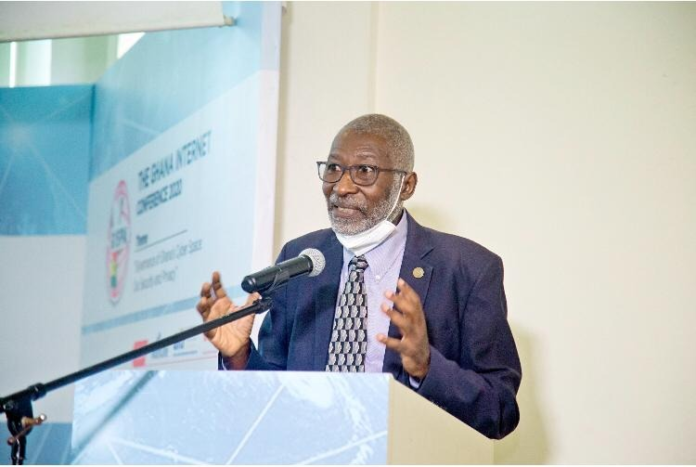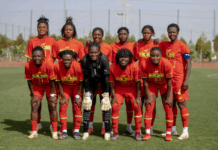
Professor of Computer Science and Chairman of Board of Dot Com, Prof. Nii Narku Quaynor has advocated for the bottom-up multi-stakeholder approach to internet governance in Ghana.
According to him, “the style of governance appropriate for the Internet was the bottom-up multi-stakeholder approach to governance…self regulation.”
The renowned Professor of ICT, made this known while delivering a keynote address at the Ghana Internet Conference 2020.
The 2020 conference was held on Thursday, October 22, at the Kofi Annan Center of Excellence In ICT, Accra.
The conference, which brought together internet industry experts and policymakers, was held under the theme: “Governance of Ghana’s Cyber Space: Our Security and Privacy.”
While trying to defend his position on the choice of governance structure best appropriate for the internet space in Ghana, Prof. Quaynor noted emphatically that
“I am speaking from experience having been Chairman of the General Assembly of the DNSO at ICANN in the ‘90s, founded the African Regional Internet Registry, Afrinic, and other organizations that practised multi-stakeholder bottom-up decision making.”
He also advocated the widespread application of bottom-up community decision processes locally in the internet, cyberspace security and privacy policy discussions.
According to him, “My interest is what a community must do correctly in order to evolve a functional bottom-up decision process.”
The bottom-up decision process, he explained, “is not same as have a policy or a decision in hand and consulting interested parties on it. That would be top down.”
“This is about a community addressing its issues together and making rules, standards, decisions or policies in a bottom-up way,” according to him.
The origins of bottom-up processes come from how the internet is, a network of networks, internetworks, he noted.
” Each network is owned by a different organization/person who has his own providers and for different purposes and following different rules or policies
It is evident that for the whole internet is to work as one, each network must surrender and follow community agreed standards and policies we together create.”
The Professor added that “That is bottom-up
There are several situations where this naturally occurs but some examples in Ghana are: ? In an NREN has campuses where each is governed by different policies; can apply this to develop network routing policies, security policies, privacy policies etc.
A campus has different departments with varied technology usage patterns and policies; can apply to acceptable use policies, networks interconnection policies, BYO device rules etc
Network operators come together to an Exchange Point (IX) to share a large switch to pass traffic to each other.”
“Their behavior is self governed by policies.
An e-government network is made of network of department and agencies of government; can develop use policies and standards.
An inter-banking switch in an interconnection of banking networks; can develop use policies and standards,” he added.
“A cyberspace security governance would have wide variety of participants from law enforcement, policy makers, technical community, operators, education, businesses, civil society and typical ordinary users may determine elaborate guidelines for how to behave in cyberspace or make policies,” according to him.






